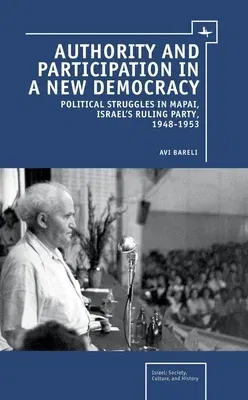Avi Bareli
(Author)Authority and Participation in a New Democracy: Political Struggles in Mapai, Israel's Ruling Party, 1948-1953Hardcover, 15 May 2014

Qty
1
Turbo
Ships in 2 - 3 days
In Stock
Free Delivery
Cash on Delivery
15 Days
Free Returns
Secure Checkout

Part of Series
Israel: Society, Culture, and History
Print Length
324 pages
Language
English
Publisher
Academic Studies Press
Date Published
15 May 2014
ISBN-10
1936235277
ISBN-13
9781936235278
Description
Product Details
Author:
Book Format:
Hardcover
Country of Origin:
US
Date Published:
15 May 2014
Dimensions:
23.39 x
15.6 x
1.91 cm
Genre:
Middle Eastern
ISBN-10:
1936235277
ISBN-13:
9781936235278
Language:
English
Location:
Boston, MA
Pages:
324
Publisher:
Weight:
630.49 gm